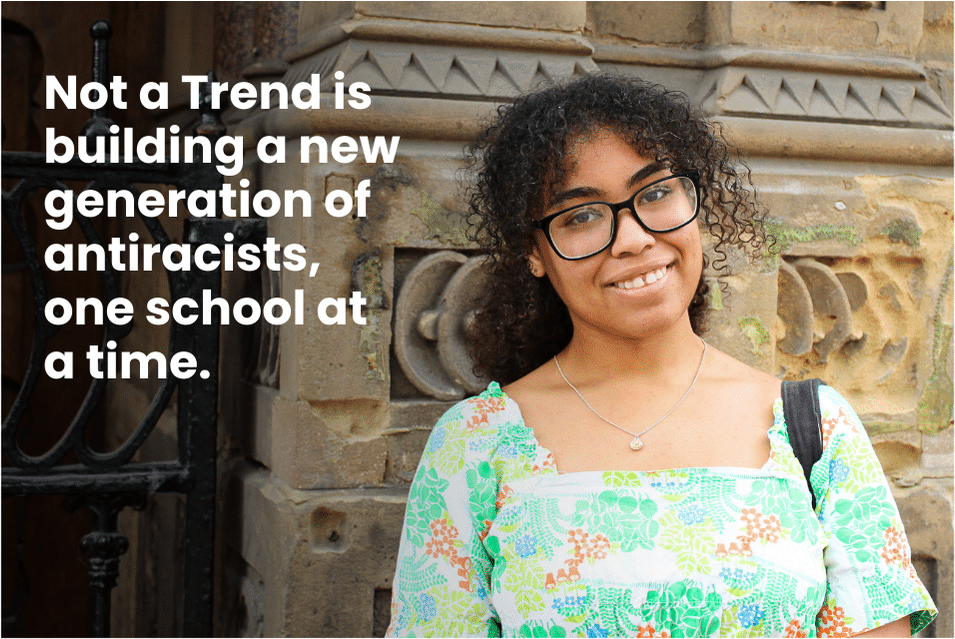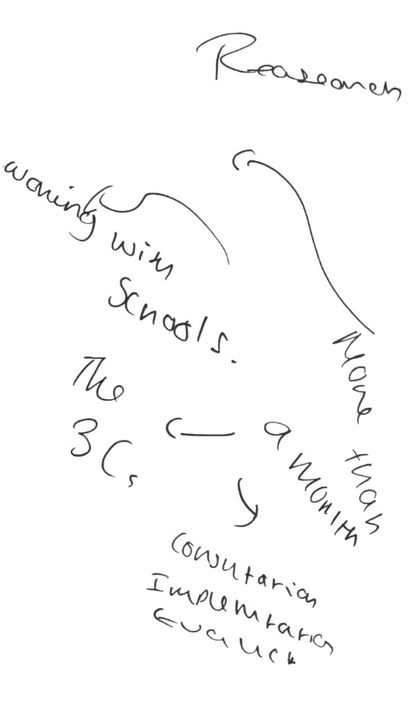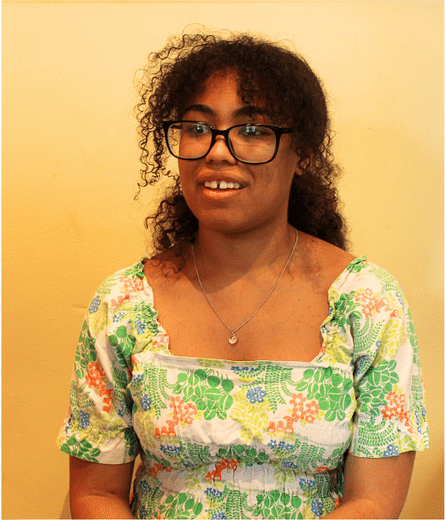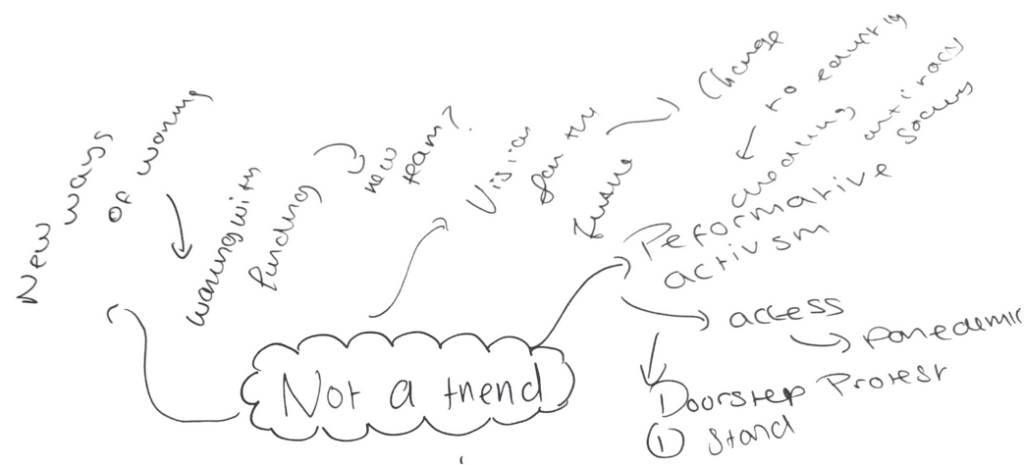In collaboration with teachers across the country, Not a Trend is transforming school conduct, cultures and curriculums through a holistic programme of antiracist work.
The British Empire was the largest to exist in human history. In 1921, it spanned a space larger than Africa and had a population of over 400 million people, just less than a quarter of the world’s population at the time. In the decades since, generations of people around the world have engaged in a process of decolonisation: undoing colonialism and dismantling its legacies, including racism. Today, in the UK, efforts to decolonise are typically focused on freeing people and institutions, especially educational institutions, from the ideology of colonialism. Public discourse around decolonising the UK’s national curriculum came to a head in the summer of 2020 following the murder of George Floyd and the ascent of Black Lives Matter as the leading grassroots movement calling for an end to the racism, discrimination, and racial inequality experienced by Black people.
At the time, Ava and Simi, the cofounders of Not a Trend, were in lockdown at their homes in South London.
“I’ve always been politically active and aware and my parents have been as well”, says Ava. “The murder of George Floyd and being mobilised to go down to all the protests in central London really awoke me in a different way. I’d always been aware and active, however I wanted to do something that could make a big and meaningful change and that’s where the idea came from.”
“We wanted to create a way for people to protest and make their voices heard.”
In the aftermath of George Floyd’s murder at the hands of a police officer in the Midwestern US state of Minnesota, people around the world expressed their outrage and solidarity through social media.
“The phrase ‘performative activism’ got thrown around with a lot of people really dissecting people’s actual motivations for getting involved in activism and spreading awareness. Are people saying these things for social kudos and to be seen as doing the right thing? Are they actually well meaning people? Are they people taking their first steps and trying to see where they can go from there and that’s the only way they can express themselves at this current point?”
With news of an increasing number of protests happening in every major city in the UK, Ava and Simi reminded themselves that antiracist work had been happening in the UK for several generations, and wondered what they could do to highlight and fortify that work in a meaningful way.
“Antiracism isn’t a new thing”, says Ava. “There are people who have been involved in antiracist work since long before I was born. And we really wanted to create a space for people whose voices have been there for the longest and who have been trying for the longest to be involved in antiracism from their own homes. We realised that for a lot of these people, especially those in their sixties and older, it’s still a pandemic and they’re unable to have their voices heard because they’re sheltering. We wanted to create a way for people to protest and make their voices heard without actually having to go to city centres.”
Together, Ava and Simi launched an online campaign to mobilise people in a doorstep protest.
“In all our emails we wrote ‘doorstop’. Every single one!” Ava laughs and palms her forehead, regretfully. “We came up with a protest that was very much based on the NHS clap and we hosted the first one on the one-month anniversary of the murder of George Floyd. We just asked people to share on social media a video of themselves making as much noise as they want from their doorsteps to have their voices heard. That was our first action and we spent a long time, maybe six months, thinking about what we would do next.”
During those months, Ava and Simi spoke at rallies organised by Stand Up to Racism and engaged local communities in conversations about racism.
“It was really nice to go and talk in places like Deptford or Ladywell, especially with Lewisham having a history of being such a diverse area with a massive Black community and there being so much history of antiracism. We also hosted a little chat where people could come and add ideas to the doorstep protest and we felt it was quite successful. We had been working with a group called Phoenix Education and we thought, ‘we are in education, we have a lot of knowledge around education,’ so that’s where we decided to do some work.”
Ava and Simi set about researching the education system, consulting Ava’s mum, who is a teacher, and reflecting on their own experiences.
“I knew that there was something wrong with schools and came from a position of privilege in that I had quite a lot of cultural capital growing up”, recalls Ava. “I often share the story of my friend who was put in internal exclusion for two days because she changed the colour of her braids to blonde but there was a multitude of white students walking around with pink hair. I thought, ‘why is this student being demonised?’ Schools are not listening to students’ feedback. Starting to read more, experiencing being a student of colour within the education system and recently being diagnosed with dyslexia all impacted my education. I listened to my Mum’s experiences of how bureaucratic schools are and how teachers often can’t do anything even if they want to.
One thing we realised is that a lot of the conversation was around the curriculum and behaviour management. We thought that for schools to properly be an antiracist and decolonised space, they need to take a holistic approach. That’s where the idea for the More than a Month scheme came from.
We wanted to create a scheme for schools to holistically decolonise and become properly antiracist within the bounds that our education system has. The curriculum is very narrow, so we wanted schools to be able to take a course which would help them.”
In recent years, new guidance issued by the UK government has banned ‘victim narratives’ and warned teachers not to use materials promoting anticapitalism. Despite the fact that they were never agreed by the public or Parliament, the mandatory promotion of ‘British Values’ in schools has further reduced the ability of teachers to meaningfully discuss topics like racism and colonialism. The current curriculum also exposes young people to harmful ideas about meritocracy and British exceptionalism: the ideas that hard work is the only determinant of success and that Britain and British people are superior to other States and people.
Offering a vital alternative, More Than A Month is a course that aims to promote antiracism throughout the academic year through a suite of resources and bespoke support from Not a Trend, which has grown to a team of four. The Challenge and Change Fund has supported Ava and Simi to develop and engage schools in the programme, which is designed to transform conduct, culture and the curriculum. To this end, Ava and Simi work with schools to assess the impact of their policies on people’s experiences, encourage a more open and communicative culture, and ensure that educational content is prepared and delivered in a more representative way.
“We think those are the three pillars of what makes a school a school”, says Ava. “The programme is broken down again into another three sections, and it’s quite a logical approach. You have a consultation phase with the school, then you have a practice phase where we see how it actually works and an evaluation stage to see what’s working well and what’s not. It’s those consultation and evaluation stages that make it a holistic approach because you’re looking at the school as a whole and seeing what they need. For example, the school culture might be really lovely and welcoming, however, their curriculum is lacking. So the whole idea is to look at different approaches for different schools. They can choose what they need from the programme, whether they work over six or twelve months, and then come back and evaluate so they can continue to build their approach.”
“When schools are decolonised, they are happy, healthy, and more productive places for students to be.”
Initially, Ava and Simi found school bureaucracies created barriers to piloting their idea. However, with some persistence, they’ve successfully delivered the programme with a number of schools, including a school in York, and have been asked to develop a workshop with a network of approximately forty schools in Staffordshire.
“Not a Trend has really picked up recently”, says Ava. “Even if schools don’t want to do a whole programme but they want to do one workshop, we can build from there. One of the things we’ve been really working on developing is teacher training so teachers are equipped to deliver the programme. Part of the consultation phase is asking how teachers are trained and if they’re provided with antiracist training. Not a Trend is youth-led but not youth-exclusive, and that’s central for working in education. You can’t do this work as young people without working with school staff and teachers.”
Already, the teachers that Not a Trend has engaged have been overwhelmingly supportive. Ava says that, while some schools are unreceptive due to a perceived lack of time to deliver the programme, they never receive a negative response.
“It’s motivating when you hear from teachers who are really enthusiastic about the work and want to make a change. It makes a huge difference to the everyday lives of teachers who are excited to hear there’s something else out there.
If you live somewhere like South London or in any big city, you get a lot of your education from the people around you, but for places that aren’t as diverse, it becomes the job of the education system to provide that knowledge and understanding. We wanted to show, through the scheme, that when schools are decolonised they are happy, healthy, and more productive places for students to be, and so why shouldn’t the government take more action to decolonise the education system?
If we all come together, we can make a change. Whether you’re a teacher and you take a couple of minutes to think about your practice and how you’re delivering a lesson or whether it’s that you’re making a Powerpoint for a science lesson and you’re only showing white bodies instead of different bodies, it’s those little things that can make a massive impact. It doesn’t take up all of your time. I understand how busy the job is but if you’re doing the work anyway, just be a bit conscious, including about the language you use with students. If education becomes antiracist, we’ll have a new generation of antiracist people on the whole, no matter where they’re from.”
—-
You can find out more about Not a Trend by visiting their website.
To connect with the team, email blm.notatrend (@) gmail.com
You can also follow Not a Trend on Instagram and Twitter.
–
The Challenge and Change Fund is designed by young changemakers for young changemakers. It funds young people directly, supporting them to create the change they want to see. It prioritises young people who are emergent and have lived experience of the injustices they are trying to change, supporting youth led collectives, social enterprises and CICs across England. You can read more about Challenge and Change here.




